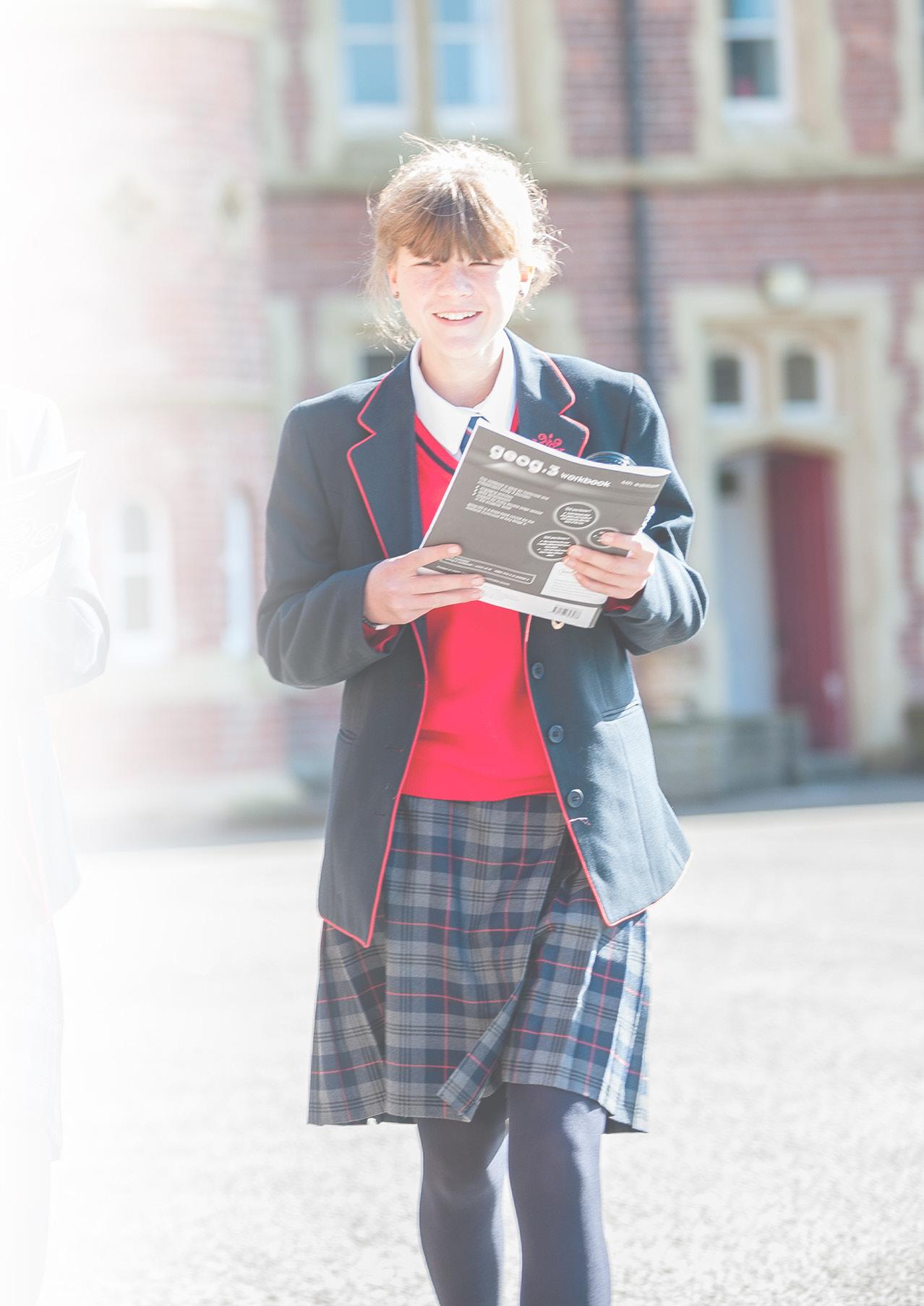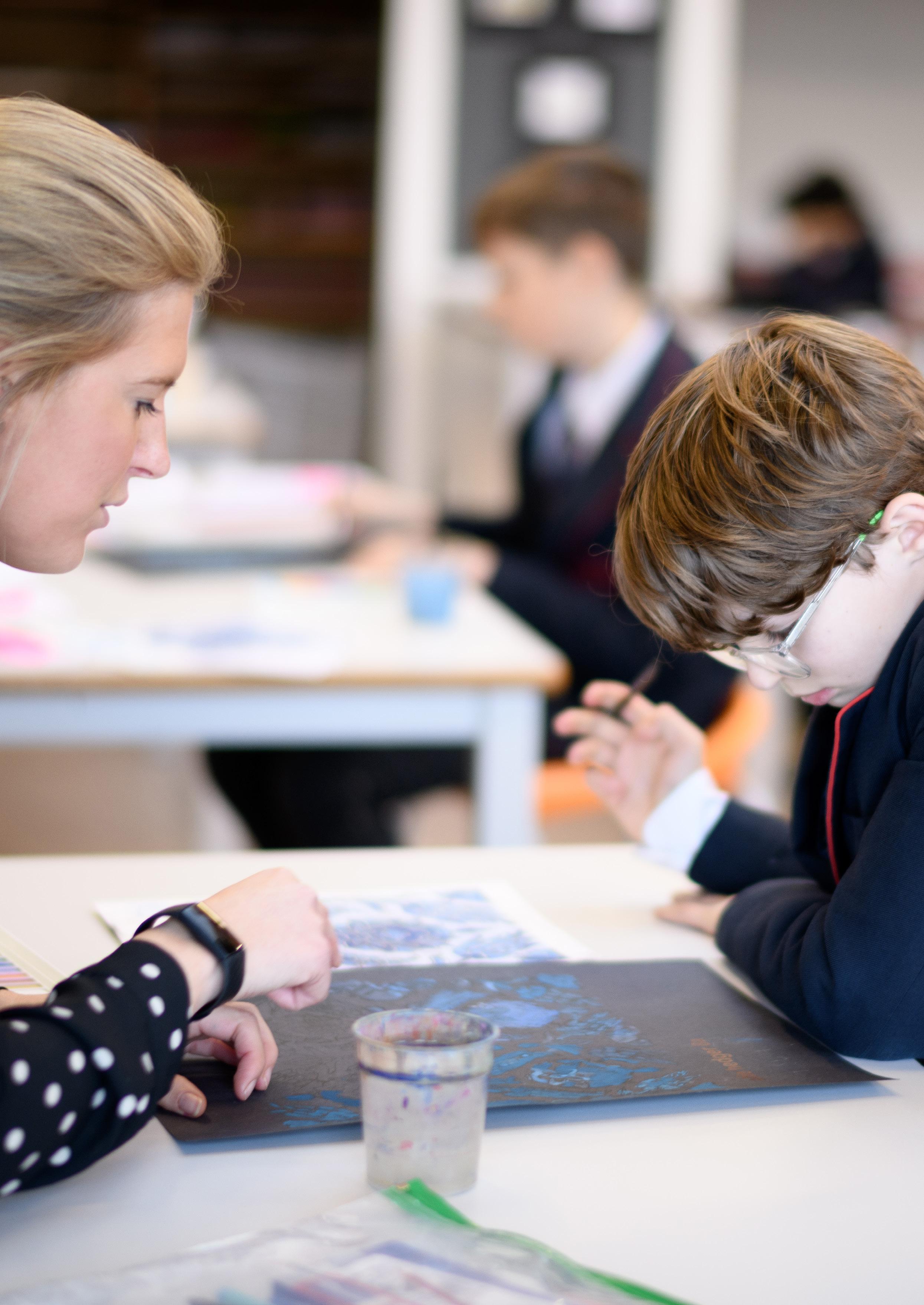YEAR 9 SUBJECT GUIDE






Year 9 will continue to work on Project based Schemes of Work. These will include research, observational drawing, development from the initial starting point, experimentation through a range of media, design concepts, appropriate use of artists‘ work within context of the project, presentation of work and a final outcome, produced over a number of lessons to conclude the project.
The practical projects will include a wide range of artistic skills, media, techniques and processes. All of these skills will help prepare students for the GCSE assessment objectives, should they wish to study Art & Design at GCSE level. These practical skills will also continue to develop creativity, observational skills, organisation and research skills, in addition to hand eye coordination, needed in many alternative disciplines.
These are examples of Year 9 projects.
To research Cubism and specifically look at the work of Picasso. This work will include photography, together with digital editing. It will include collage with compositional skills and the advanced use of acrylic paint.
To complete a pattern-based project on Japanese textile designs, considering motifs and compositional layout. The design will firstly be painted on black, using watercolour and later transferred on to silk, with an introduction to silk painting.
You will develop skills in building a project from an initial starting point. Including all of the skills which are assessed at GSCE level and beyond:

• The development of ideas through investigations, demonstrating critical understanding.
• The refinement of work by exploring ideas, selecting and experimenting with appropriate media, materials, techniques and processes.
• Recording of ideas, observations and insights relevant to intentions as work progresses.
• Presenting a personal and meaningful response that realises intentions and demonstrates understanding of visual language.
Yes - the skills you will be developing during Year 9 will certainly prepare you for the GSCE course. The skills required at GCSE require a lot of practise and refinement.
Design & Technology aims to develop both technological capability, and technological perspective. Using creativity and imagination, you will learn how to design and make products that solve real and relevant problems within a variety of contexts, considering your own and others’ needs, wants and values.

Developing insight into ‘how technology works’ enables you to consider how technology might be used to provide products and systems that help create the sort of society in which we wish to live.
You will acquire a broad range of subject knowledge and skills, drawing on disciplines such as mathematics, science, engineering, computing and art. This subject will help you learn how to take risks, becoming resourceful, innovative and enterprising. Through the evaluation of past and present Design & Technology, you will develop a critical understanding of its impact on daily life and the wider world.
It is not a requirement, however, it would be an advantage to have taken this course.
Year 9 Dance aims to inspire and build confidence through exploring a range of advanced dance techniques, styles and forms.You will further develop your knowledge of the three core areas of the Dance curriculum; choreography, performance and appreciation. During the year you will also begin to build on your knowledge and look towards developing your complexity in thinking in preparation for GCSE level. The three curriculum areas will be explored in more depth and learning will centered around the exploration of professional dance works to give you further insight into current dance performances and practices. Progression will be shown in your knowledge of appreciation by introducing concepts of productions as a whole (set/staging, lighting, costume, aural setting) and analysing choreography and performance within professional performances.
You will develop skills, knowledge and understanding of dance as a choreographer, performer and critic through a mixture of practical and theory lessons.
You will be taught to:
• Understand and apply the correct dance terminology to own work.
• Create choreography based on varying stimuli, developing their creativity.
• Analyse and evaluate professional dance works and the intention behind the work and chosen constituent and production features.
• Develop technical ability, physical and expressive skills.
• Work collaboratively to explore choreographic ideas developing creativity and confidence.
• Build confidence to perform to others-expressing selves and ideas.
• Develop an understanding of the role of the arts in society, including as a career.
It is desirable but not essential. The topics covered during the course of the year serve as a foundation for anyone considering taking GCSE Dance.
Building on the ensemble work that has been the focus of your Drama lessons for the past two years, you will now begin to explore the work of key playwrights and theatre practitioners. The course is essentially practical in nature, with a particular focus on performance in all its various forms. At times you will be working with scripts, although you will also use learned techniques to create new work. Along the way, there will be opportunities to engage with all aspects of Theatre, including set design, lighting, sound, costume and makeup. As well as your practical work, the course will also involve a significant amount of evaluation and critical reflection.
The course will help you to develop a hugely valuable set of skills that you will continue to use throughout your life. No subject teaches you teamwork quite like Drama. It will help you develop patience, an ability to compromise and communication skills.You will learn self-discipline and develop a deeper awareness of your body language. Drama will also teach you to be proactive and think on your feet. But above all, Drama requires a great deal of empathy, the ability to identify with other people and their situation. Our course provides you with the opportunity to develop these skills in a fun, creative and supportive environment.
It is desirable but not essential. The topics covered during the course of the year serve as a foundation for anyone considering taking Drama to GCSE.

The EAL course is designed for pupils who are non-native speakers of English. Pupils will develop their language skills and improve their vocabulary and grammatical accuracy across a broad range of topics e.g. family and relationships, food, health, sports, technology, etc. The language developed in the course lends itself as a support to the pupils in their mainstream subjects.
Pupils will develop skills that enable them to understand routine information and articles, factual articles in newspapers, routine letters from hotels and letters expressing personal opinions and most information of a factual nature in his / her study area. They will be able to make notes on familiar topics, and compose letters on a range of topics related to personal experience. Pupils will also develop their listening and speaking skills which enable them to understand straightforward instructions and public announcements, identify the main topic of a news broadcast on TV with a strong visual element, express simple opinions on abstract/cultural matters, ask for information about accommodation and travel, and understand instructions on classes and assignments given by a teacher.
It is desirable for pupils whose first language is not English to study EAL so that they can improve their level of English in order for them to take the GCSE course.
The Y9 French option is a beginners course, preparing pupils for the GCSE French exams. The GCSE topics and grammar will be introduced at an accessible level and gradually stretched. The topics covered will be very similar to those that have been covered in German and Spanish in Years 7 & 8. Ultimately, the topics are House & Home and travelling, School and Employment, Free time activities, Social issues (eg social media, environment, voluntary work) and Travel and Tourism.
The study of Modern Languages offers a key to a range of experiences inaccessible to those who only speak English. Being able to speak to a foreign person in his/her own tongue is an experience not to be missed. Learning a foreign language widens your horizons and gives you interest in, understanding of, and respect for the way of life in societies other than your own. It also makes you more aware of the nature and function of your own language. Learning a language should also be an enjoyable experience, which provides you with skills, which would be more difficult to acquire later in life. In class, you get to study a wide range of topics all about different people and cultures, not just how to speak the language you are learning. Languages mean business - many employers now want their employees to have at least a GCSE in a foreign language. Languages are good for you! Speaking more than one language increases your brain capacity and improves your memory. It is impressive to be able to speak a foreign language. It is a real achievement that your friends will envy and employers will love. Using a language at work could raise your salary by 8-20%.
Yes. To take any modern language as a GCSE requires prior learning.Y9 will form the foundation of the GCSE topics and grammar, which will then be covered in more depth and detail during the GCSE course
Year 9 Food & Nutrition builds on the topics covered previously and involves both theory and practical work. It is a creative course which focuses on providing you with the necessary practical skills and nutritional knowledge that you will need before commencing GCSE study.
Through a variety of creative and practical activities, you will be taught how to prepare and cook a range of nutritionally balanced dishes safely and hygienically. This course aims to extend your knowledge and understanding of food, diet and health, further developing your practical skills in food preparation and different cooking techniques enabling you to make informed decisions about your own diet and food choices.
You will be taught to:
• Understand and apply the principles of nutrition and health.
• Cook a repertoire of predominantly savoury dishes so that you are able to feed yourself and others with a healthy and varied diet.
• Become competent in a range of cooking techniques [for example, selecting and preparing ingredients; using utensils and electrical equipment; applying heat in different ways; using awareness of taste, texture and smell to decide how to season dishes and combine ingredients; adapting and using your own recipes]
• Understand the source, seasonality and characteristics of a broad range of ingredients including cereals, fruit, vegetables, meat, fish, eggs, fats/oils, milk and dairy food products.
• Develop practical skills – some examples of products made may include:- fruit and vegetable crumble, rock buns, savoury scones, small cakes, biscuits, brownies, fruit salad, coleslaw, tuna pasta salad, pizza, and victoria sponge cake.

• Understand the importance of working safely and hygienically.
• Develop an understanding of the functional and nutritional properties of ingredients.
• Evaluate products and suggest improvements to your work.
It is desirable but not essential; this course provides a sound foundation for those wishing to take Food & Nutrition to GCSE level, as well as food knowledge and skills which will be of use throughout life.
You will begin using the Latin to GCSE language course book which will provide the opportunity to look again at material already studied as well as introducing new grammar and syntax which will establish a very strong foundation of linguistic knowledge on which the GCSE course will build. The course book also contains stories for translation based on the key characters from Greek and Roman mythology and so you will have the chance to research the characters from some of the most famous stories of the ancient world.You will also continue to explore aspects of Roman history, including the Roman army in Britain and Boudicca’s rebellion, the famous buildings of Ancient Rome and what happened in them, and the role of women in the world of the Romans.
Studying Latin is challenging and rewarding, and you will continue to develop the logic and problem-solving skills that naturally come from being able to understand grammar and translate stories accurately. Seeing links with Latin words will help you to develop a better understanding of modern languages such as French and Spanish as well as helping you to communicate more effectively in English. The history element of the course with its focus on the Romans provides interesting insight into fascinating cultures and helps us to better understand our own culture by seeing how much ancient civilisation has influenced our lives.
Yes - the language material covered in Year 9 will provide an important stepping stone to the GCSE course, and so only students who have studied the course in Year 9 will be able to continue to GCSE.
You will be following the Musical Contexts programme on a variety of different projects which will build on the knowledge which you have acquired in Year 8 in terms of performing, composing and listening. The projects include an exploration of the history and development of musical styles and genres from 1600 to the present day and how composers can create different moods through the use of specific compositional techniques. This knowledge is then applied in a project which researches the creation of music for Film and TV, resulting in you creating your own video soundtrack. Through studying these projects you will learn how musical traditions have changed in reaction to social and cultural development culminating in the role which Music plays in the society of today in terms of media and computer games.
The mixture of creativity, discipline, and communication that music study demands helps you to develop, not only as a musician, but also through improving your learning skills, communication skills, creativity, teamwork, discipline, cultural awareness, respect for others, and self-esteem through personal accomplishment.

It is desirable, but not essential - the subject specific terminology, analysis, composition and performance skills which you will develop are an important part of success at GCSE.
The course will be an introduction to the AQA GCSE PE course and will involve both theory and practical lessons. Theory lessons will be taught in the classroom and in a practical setting and will predominantly cover the Physical Training unit of the GCSE. The major focus will be the different components of fitness and students will learn what they are, how they benefit performance in different sports and how they can be used through a variety of training methods. Students will also participate in team and individual sports such as Handball, Badminton, Swimming and Athletics, completing assessments that follow a similar format to the GCSE.
You will develop your knowledge, competence and confidence in a wide variety of skills that will enable you to confidently move forward with both your studies and your practical performances.You will develop transferable skills including: decision making, psychological understanding of people, independent thinking, problem solving and analytical skills as well as thinking, acting and reacting under pressure.
It is not essential, but it will give you a huge advantage to take this subject in Year 9 if you intend to take GCSE PE as you will have a head start on the theoretical element of the course.

